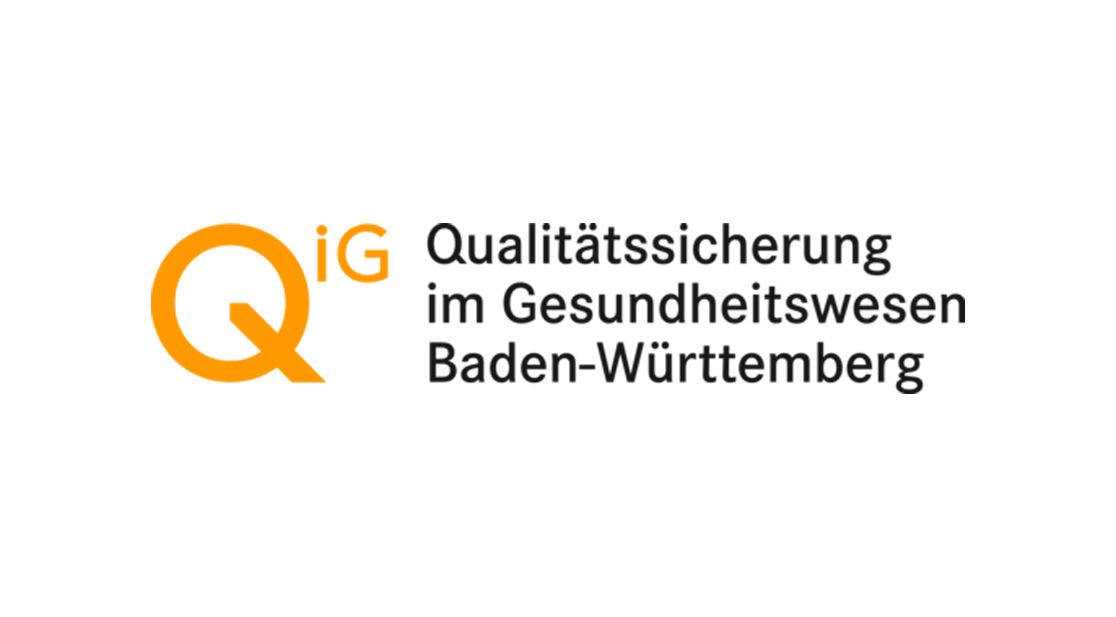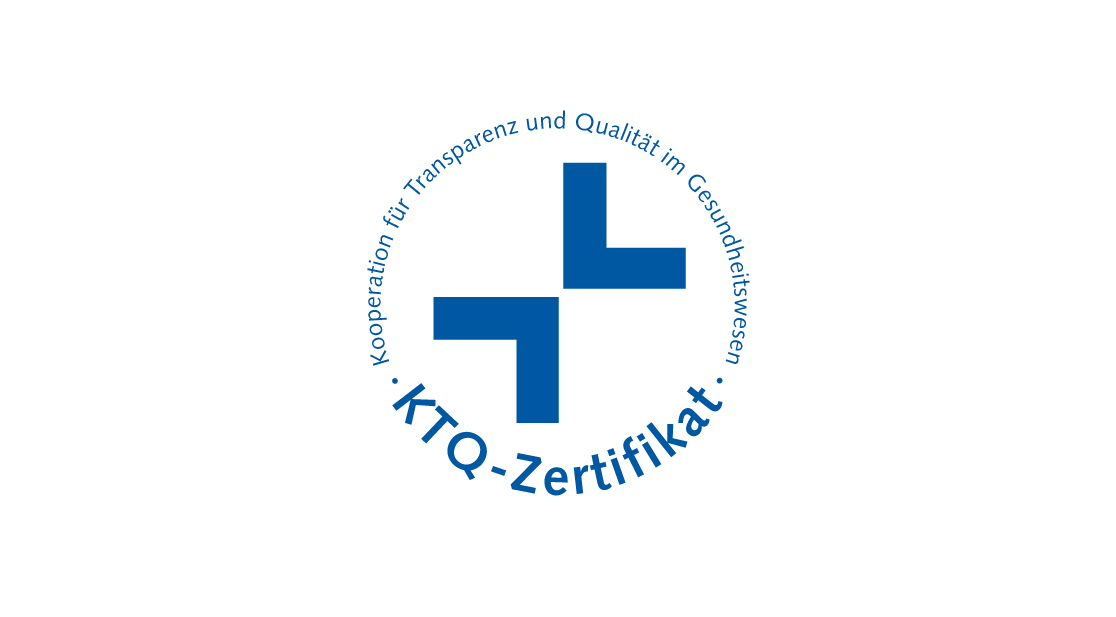Continuous improvement and high-quality service provision in the areas of health care, research and teaching characterise the quality concept at the University Hospital Tübingen. Impulses from the workforce, results from quality assurance measures and comparisons with others form the basis on which improvements are initiated. Knowledge and skills are exchanged and further developed in interdisciplinary, multi-professional teams and networks. For this purpose, methods and instruments from quality management are used professionally. This creates a lively culture of learning and togetherness.
The University Hospital
Quality concept
Dr. Mika Rollmann
Geschäftsführerin Zentralbereich Medizin: Struktur-, Prozess- und Qualitätsmanagement
Chief Medical Information Officer (CMIO)
frontend.sr-only_#{element.icon}: +49 7071 29-87341
E-mail address: zentralbereich.medizin@med.uni-tuebingen.de
frontend.sr-only_#{element.icon}: Hoppe-Seyler-Straße 6, 72076 Tübingen
Klaus Hemmen
Risikomanagementbeauftragter
frontend.sr-only_#{element.icon}: +49 7071 29-82096
E-mail address: klaus.hemmen@med.uni-tuebingen.de
frontend.sr-only_#{element.icon}: Hoppe-Seyler-Straße 6, 72076 Tübingen
External inpatient quality assurance
External inpatient quality assurance
The University Hospital of Tübingen implements the legally binding measures for quality assurance in the healthcare system of the Joint Federal Committee (G-BA) and the state of Baden-Württemberg.
The aim of the national and state-wide procedures is to maintain and improve the high quality of medical care in Germany as well as patient safety. Our patients' treatment data is collected and analyzed to ensure the quality of certain treatments and procedures. The strictest data protection and data security measures are observed.
Patient information on data collection
Patient information on data collection
Information sheets for patients in easy-to-understand language are available on the homepage of the Federal Joint Committee (G-BA). These leaflets provide information on data collection and data processing and are available for download.
On the homepage of the state office "Qualitätssicherung im Gesundheitswesen Baden-Württemberg GmbH" (QiG BW GmbH) you will find information on the state procedures.
Qualitätsbericht
Structured quality report
In the quality report of the clinic, our patients and referring physicians can inform themselves about medical services, main areas of care and services as well as quality management. The report also contains contact persons and contact addresses.
KTQ
KTQ certification
KTQ certification focuses on the quality of processes, treatment and care outcomes, with the aim of identifying potential for improvement. A new review (recertification) by an external audit is required every three years. The University Hospital of Tübingen has been able to continuously optimize the quality of its services since the initial certification in 2009. This has enabled the hospital to better meet the needs of patients, their relatives, employees and visitors.
Hygiene
Maximum care houses require a full-time hospital hygienist. The hospital hygienist's task is to record and analyse any nosocomial (i.e. hospital-acquired) infections in cooperation with the hygiene specialists and the physicians in charge of hygiene in the clinic, to develop preventive measures, to translate them into practicable rules and to monitor their observance. He coordinates proactive measures to prevent and control antibiotic-resistant infectious agents in the clinic. As communication partner of the Public Health Service, he is in charge of the interface to the supervisory authorities and is also a member of the Hygiene Commission according to the Hospital Hygiene Ordinance Baden-Württemberg.
Dr. Jan Liese
Hospital hygienist
frontend.sr-only_#{element.icon}: +49 7071 29-82026
frontend.sr-only_#{element.icon}: +49 7071 29-5405
E-mail address: jan.liese@med.uni-tuebingen.de
frontend.sr-only_#{element.icon}:
Elfriede-Aulhorn-Straße 6,
72076 Tübingen
Transplantation and organ donation
Dealing with relatives in order to possibly bring about a decision on organ donation is a highly sensitive task that requires a lot of empathy and sensitivity and is therefore performed by specially trained doctors. In order to guarantee the legal obligations as well as the claim of the University Hospital as a supraregional transplant centre, a Senior Transplantation Officer has been appointed by the Board of Directors of the Hospital, who is supported by other transplantation officers in the relevant clinical areas.
The task of transplantation officers is to sensitize medical and nursing staff, patients and relatives as well as the public to the importance and urgent necessity of organ donation and to define and continuously optimize internal procedures for organ donation.
Dr. Manfred Beck
Senior Transplantation Officer
frontend.sr-only_#{element.icon}: +49 7071 29-80322
frontend.sr-only_#{element.icon}: +49 7071 29-5439
E-mail address: manfred.beck@med.uni-tuebingen.de
frontend.sr-only_#{element.icon}: Hoppe-Seyler-Straße 6, 72076 Tübingen
Medical Device Safety
As the central office within the University Hospital, the Medical Device Safety Officer acts as a contact person for authorities, manufacturers and distributors in connection with reports on the risks of medical devices and the implementation of necessary corrective measures. He also coordinates internal processes for fulfilling the reporting and cooperation obligations of users and operators of medical devices at the hospital.
Frank Stegmaier, Dipl.-Ing. (FH)
Beauftragter für Medizinproduktesicherheit nach §6 MPBetreibV
E-mail address: Medizinprodukte.Sicherheit@med.uni-tuebingen.de
Reprocessing unit for medical devices
The reprocessing unit for medical devices is a certified facility according to DIN EN ISO 13485 (including Critical C medical devices) and is responsible for the reprocessing of non-active medical devices.
Staff unit reprocessing unit for medical devices
frontend.sr-only_#{element.icon}: +49 7071 29-81082
E-mail address: aemp@med.uni-tuebingen.de
More about the staff unit
Supply Chain Sourcing Obligations Act (LkSG)
The University Hospital Tübingen (UKT) and the Faculty of Medicine (MFT) have issued a declaration of principle committing them to implementing the human rights and environmental due diligence obligations in accordance with the LkSG and anchoring them in all relevant processes through appropriate measures. In doing so, we are emphatically facing up to our social responsibility and are clearly committed to complying with human rights and the requirements of the Supply Chain Due Diligence Act.
Declaration of principles LkSG
Supplier Code of Conduct
The Supplier Code of Conduct contains our expectations regarding compliance with the human rights and environmental requirements of the LkSG. Our suppliers are expected to comply with the principles set out in the Supplier Code of Conduct when working with UKT. They should also implement and promote these principles in their own supply chains.
Compliance, Shareholdings and Internal Auditing staff unit
Management:
Tanja Jacob
Compliance Officer
Human Rights Officer
E-mail address: Compliance@med.uni-tuebingen.de
More about the staff unit
Whistleblower system
The Whistleblower Protection Act requires companies to implement a whistleblower system for submitting reports. The Act regulates the protection of persons who have obtained information about violations in connection with their professional activities or in the run-up to professional activities and report these to the designated reporting bodies (whistleblowers).
The Whistleblower Protection Act (HinSchG) grants whistleblowers protection against disadvantages that they could face as a result of reporting violations.
Submitting a complaint
Complaints under the LkSG and compliance notices (e.g., if there are indications of violations of laws as well as internal directives) can be reported online. You can choose whether you want to report anonymously or confidentially. Both are possible.
Certificates and Associations

Focus: Top National Hospital 2026

Stern: Germany's Outstanding Employers in Nursing 24/25

Quality partnership with the PKV

Family as a success factor

Pension provision for the public sector










